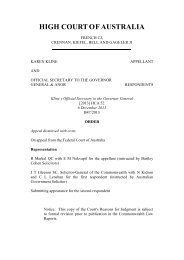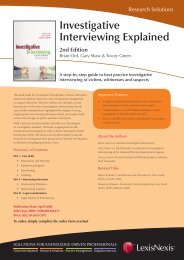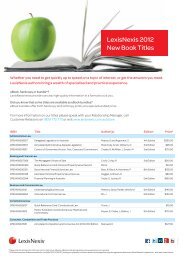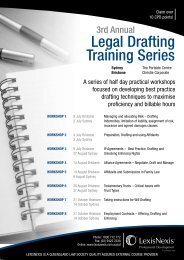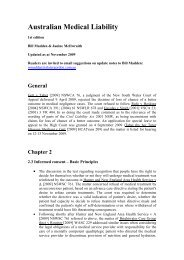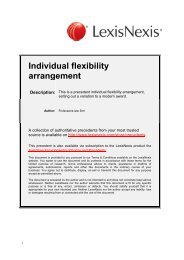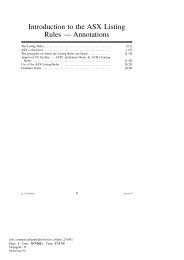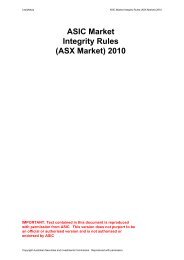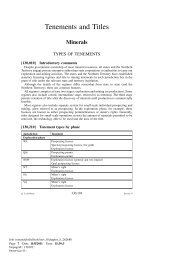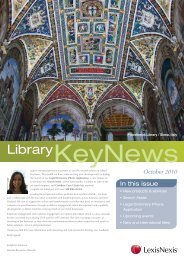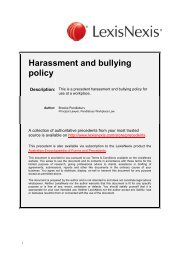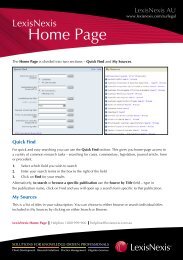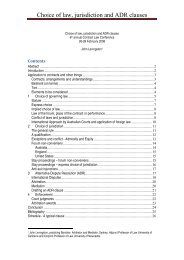Chapter 2 - LexisNexis
Chapter 2 - LexisNexis
Chapter 2 - LexisNexis
Create successful ePaper yourself
Turn your PDF publications into a flip-book with our unique Google optimized e-Paper software.
<strong>Chapter</strong> 55.19 Ethical framework• For an interesting discussion on the possible clinical benefit to the patient ofan early disclosure of an adverse event, see A Allan & D McKillop, The healthimplications of apologizing after an adverse event, International Journal forQuality in Health Care 5 February 2010.• Incidental to the discussion regarding duty to disclose error are recent movestowards a statutory framework for ‘mandatory reporting’. For example,Section 71A of the Medical Practice Act 1992 (NSW) introduced a concept of“reportable misconduct”, placing an obligation on doctors (after 1 October2008) to report certain types of misconduct to the New South Wales MedicalBoard.o71A Reportable misconduct: (1) A registered medical practitionercommits reportable misconduct in the following circumstances: (a) ifhe or she practises medicine while intoxicated by drugs (whetherlawfully or unlawfully administered) or alcohol, (b) if he or shepractises medicine in a manner that constitutes a flagrant departurefrom accepted standards of professional practice or competence andrisks harm to some other person, (c) if he or she engages in sexualmisconduct in connection with the practice of medicine. (2) Aregistered medical practitioner who believes, or ought reasonably tobelieve, that some other registered medical practitioner has committedreportable misconduct must, as soon as practicable, report the conductto the Board.• Guidelines issued in August 2008 by the New South Wales Medical Boardprovide some commentary on subsection (b), indicating that the Boardconsiders a flagrant departure from accepted standards involves a very highdegree of departure from such standards. Conduct which is merely careless ornegligent (in the sense that it fails to meet the standards of care owed topatients) will generally not be flagrant. Whilst it is possible for reasonablepractitioners to disagree about whether a particular practice is or is notnegligent, a flagrant departure is likely to be one which is both serious andobvious to any reasonable practitioner. This is particularly likely to be the casewhere another practitioner engages in reckless, unethical, wilful or criminalbehaviour. The reportable misconduct must pose a risk of harm to some otherperson as well as constituting a flagrant departure from accepted standards ofprofessional practice or competence, before mandatory reporting is required.The Guideline can be found on the New South Wales Medical Board websitehttp://www.nswmb.org.au under the menu item ‘news & updates’.• Similar ethical obligations are reflected in 6.3.4 and 6.3.5 of Good MedicalPractice: A Code of Conduct for Doctors in Australia which will be consideredfor adoption or endorsement by the State and Territory medical boards. Thenew Medical Board of Australia will adopt the Code.http://goodmedicalpractice.org.au/wp-content/downloads/Final%20Code.pdf



